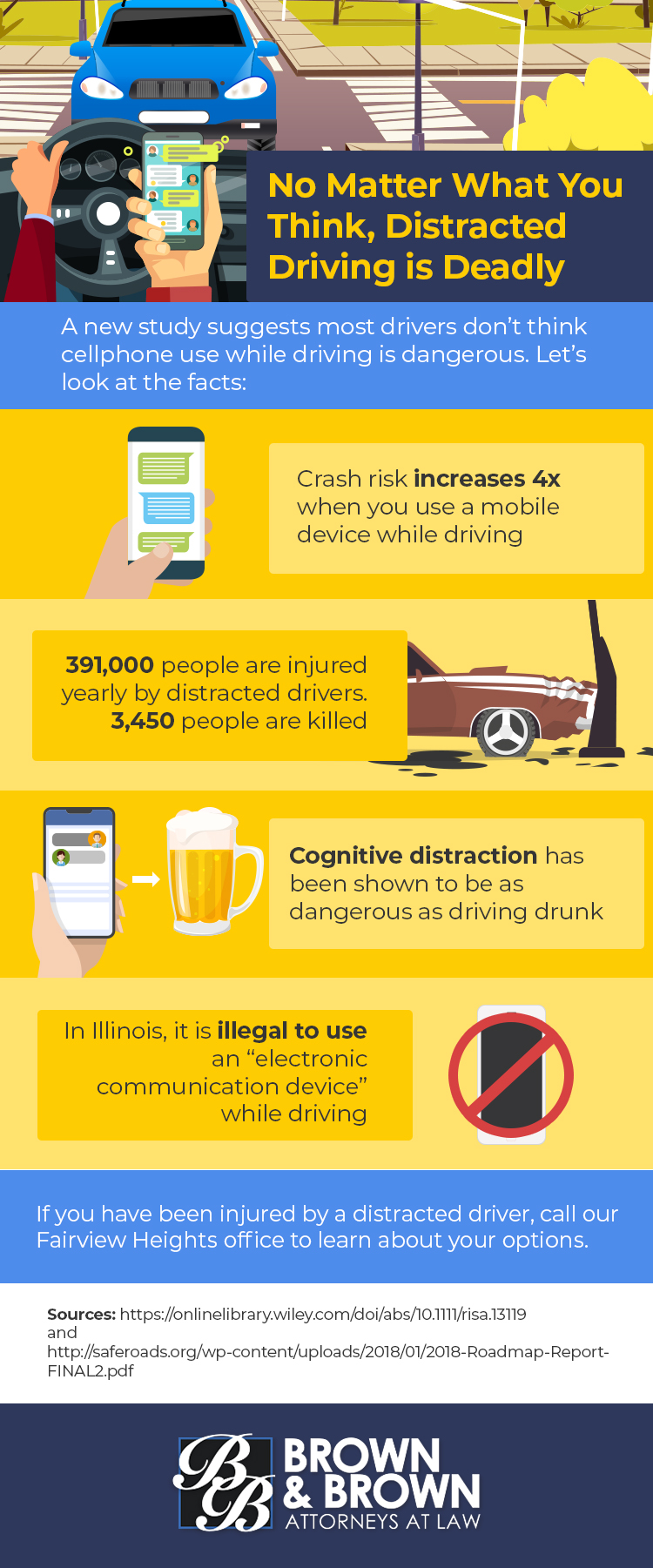Killing nearly 4,000 people yearly and injuring an additional 400,000 distracted driving has become an increasingly problematic issue in the United States. Oftentimes, distraction is thought of as using electronics, like a phone, to read, type, or text. However, this type of distracted driving comprises only a small portion of these accidents. Many behaviors that we don’t even think about while driving qualify as distractions and place everyone on the road at risk.
Types of Distraction
There are three primary types of distraction:
- Manual – this includes using a handheld device to type or text, eating and drinking, applying makeup, and personal grooming
- Visual – this includes looking at onboard electronics (GPS and anything with a screen), looking for a dropped item, and rubbernecking
- Cognitive – daydreaming, giving into rage, planning a speech, and mentally composing a text are all examples of cognitive distraction
Most people agree that manual distractions are a danger and many states, Missouri included, have created laws to reduce instances of texting while driving. Some states have gone so far as to ban handheld devices from use while driving. The problem is, handheld devices aren’t the only problem. These laws are well-intentioned but ultimately incomplete as they fail to address the real culprit, which is paying attention to anything that is not directly related to the act of operating a vehicle.

What You Can Do
Some surveys have found that most Americans believe distracted driving is a serious problem, they just don’t think they’re guilty of it. However, nearly everyone among us has, at some point, engaged in behaviors that would qualify as distracting. The only way to prevent killing someone while you’re doing something besides driving is to just drive. Put your phone down. Groom yourself at home. Keep your eyes and attention on the road. These are the only ways to prevent causing a distracted driving accident.
If you have been injured or a loved one has died in as a result of a distracted driving accident, you may be entitled to compensation for any related damages. This can include property damage, medical expenses, wage compensation, and noneconomic considerations such as physical and emotional pain and suffering. The best way to find out is through a one-on-one consultation at the St. Louis office of Brown & Brown.
Our car accident lawyers understand how to investigate accidents and determine if distraction played a role. Call our St. Louis office at 314-333-3333 or our Illinois office at 618-888-8888 to schedule a complimentary consultation. Brown & Brown serves victims of serious injury living in Missouri and Illinois.

